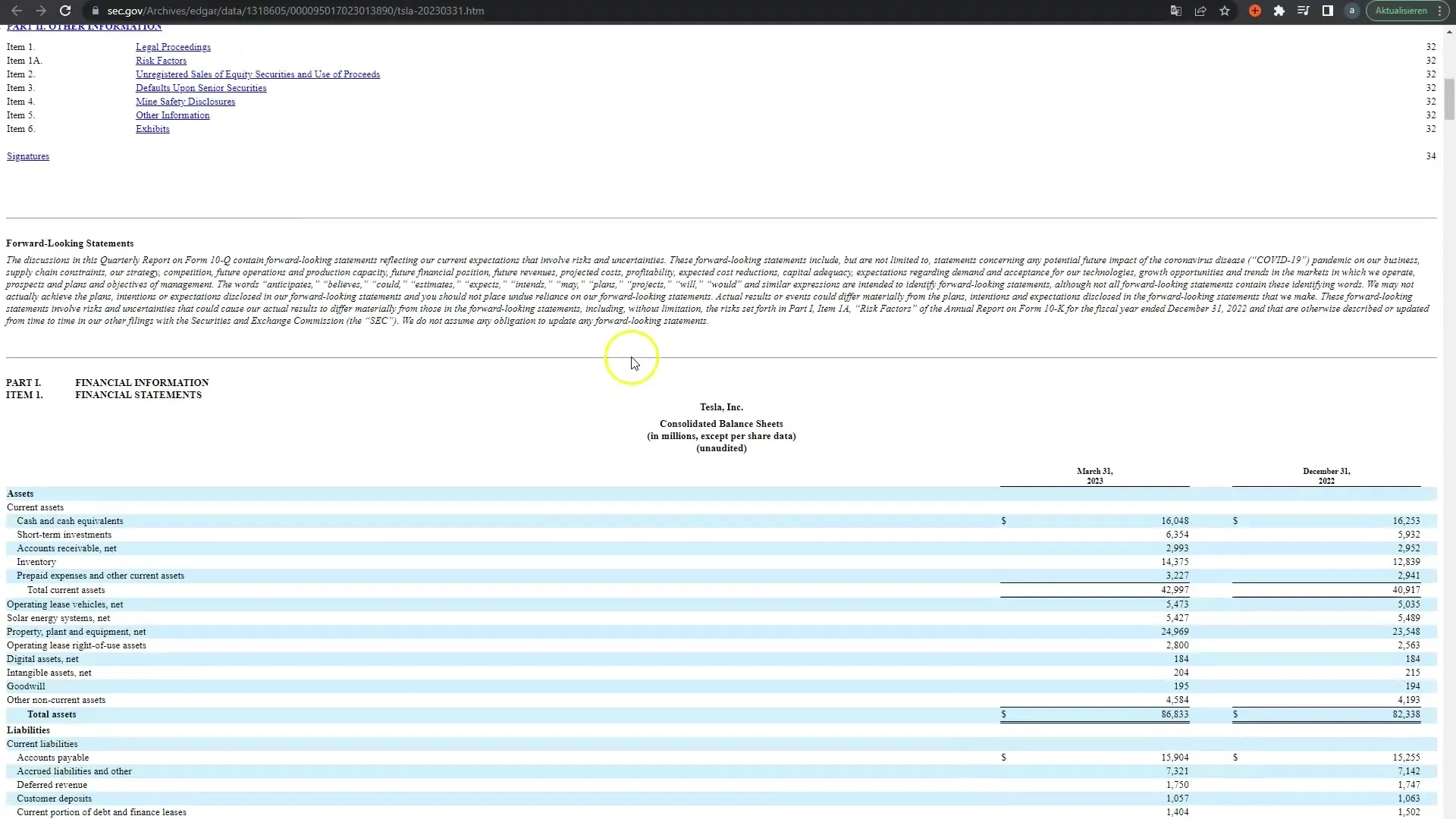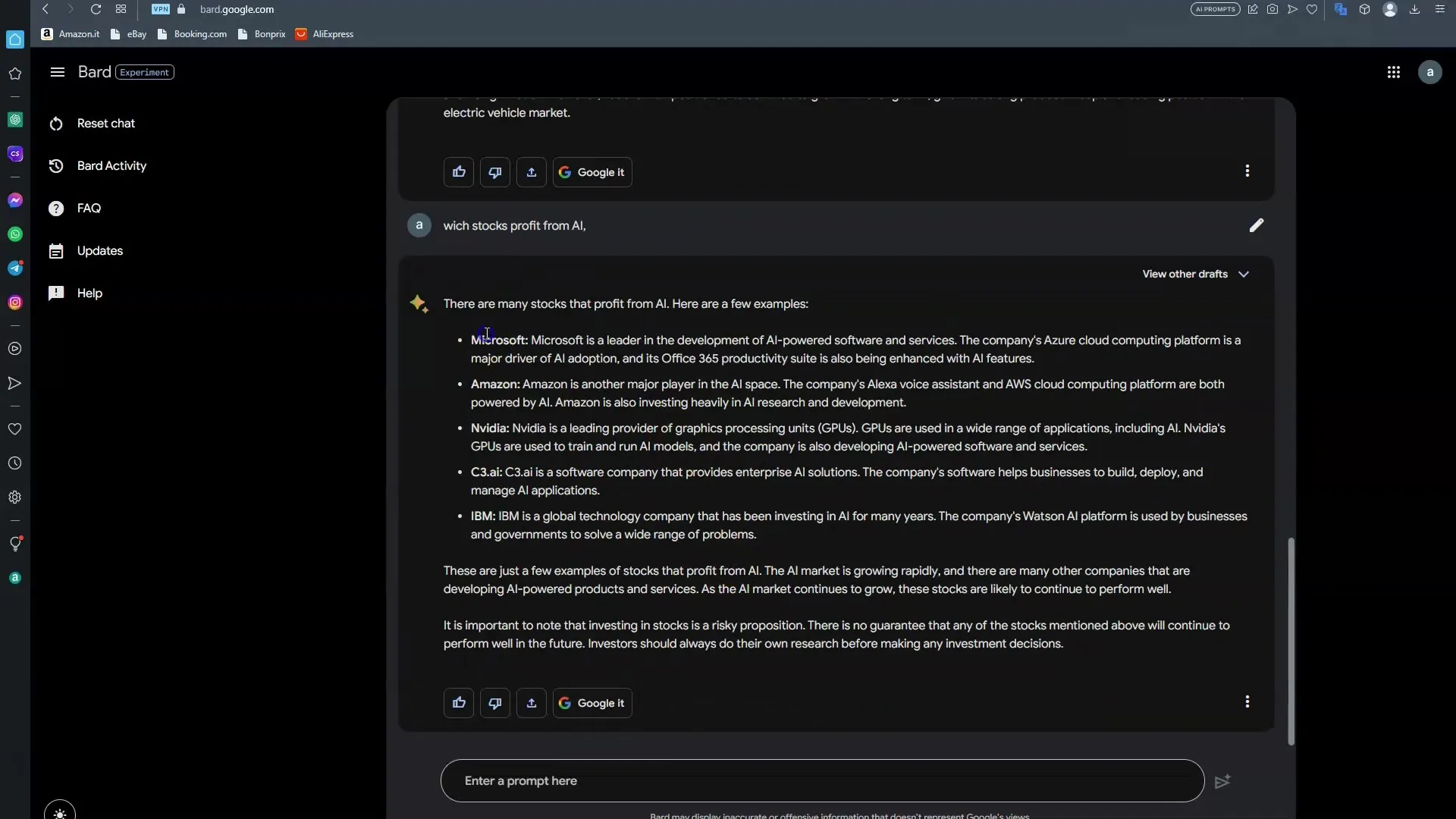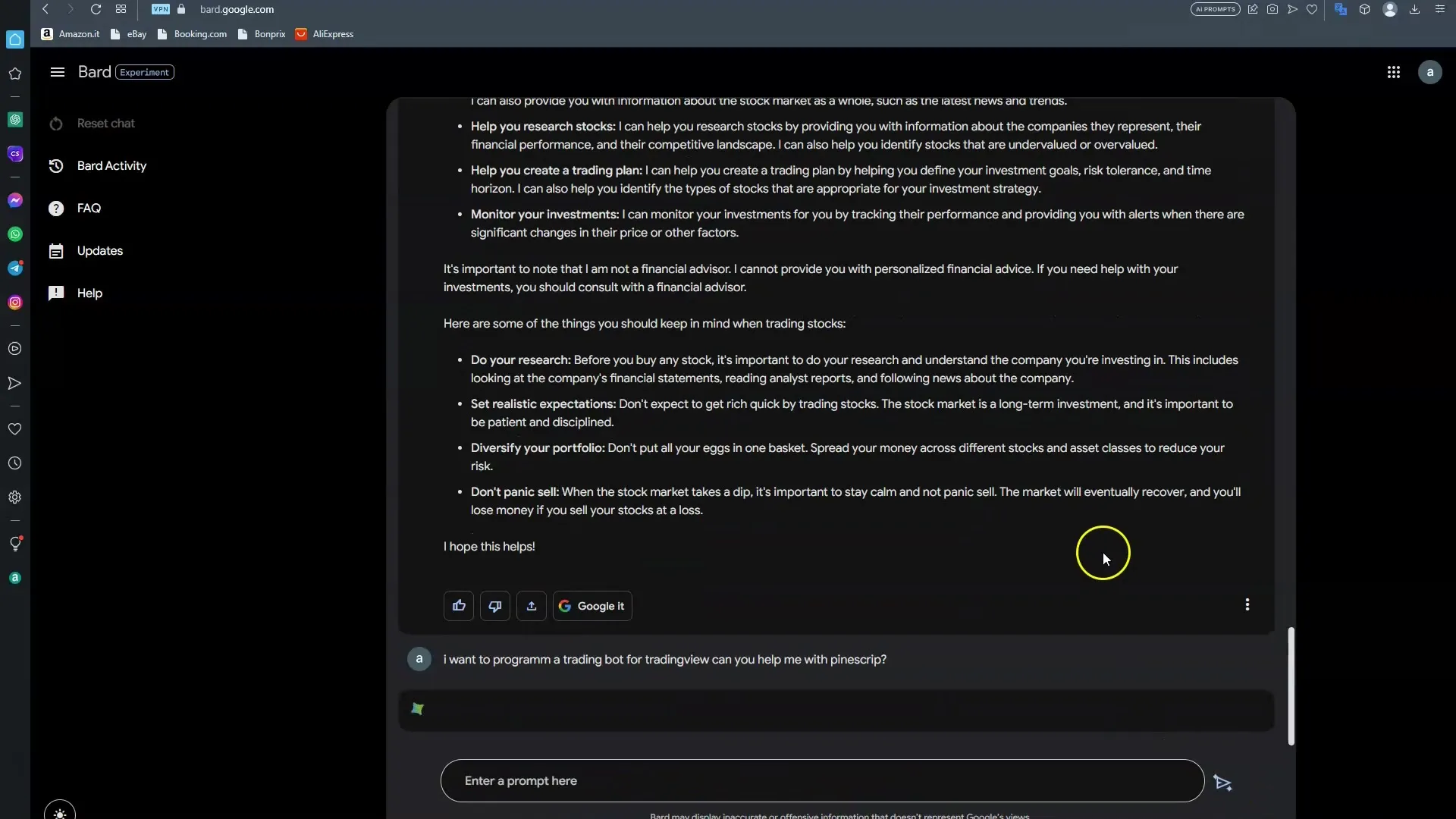As Artificial Intelligence (AI) has an increasingly large impact on our decision-making processes, the question arises of how we can effectively utilize this technology – especially in financial analysis and when investing in stocks. In this tutorial, I will show you how to use Google Bard to support your investment decisions. We will proceed step by step, highlighting both opportunities and pitfalls when dealing with AI in the financial sector.
Key Insights
- Artificial Intelligence can support stock analysis and trading, but be cautious with the results.
- Always understand the numbers and information presented to you before making decisions.
- Google Bard can be used as a tool for idea generation and research for investments.
Step-by-Step Guide
Step 1: Getting Started with Google Bard for Financial Analysis
Begin by opening Google Bard. You will find a user-friendly interface designed to assist you with general questions and specific research. Start with a clear question about a company, and I recommend asking for the current financial data directly.
Step 2: Analyzing the Financial Data of a Company
Choose one of the companies you want to analyze. For example, you can search for the latest 10-K financial reports which provide detailed information about a company's financial position. Give Google Bard the specific link to this document and request a summary of key metrics.
Step 3: Reviewing the Results
After Bard has provided you with the data, the next step is to validate this information. Let's conduct an example analysis based on Tesla. If Bard tells you that revenue increased by 81% in a specific year, verify if this number aligns with the information in the 10-K financial report.
Step 4: Analyzing Sales Figures
Ask Google Bard for Tesla's sales figures for the first quarter. For example, if you want to be informed about the number of vehicles delivered, compare the numbers Bard provides you with the official statistics.

Step 5: Applying Critical Thinking
One of the most important aspects of investing is critical thinking. Even though Bard provides you with useful information, it's your responsibility to question these numbers. If Bard presents you with a growth rate of 80%, check the possible implications: such high growth could be unrealistic.
Step 6: Strategies for Investing
When starting to build an investment strategy, Google Bard can help you identify the right stocks that benefit from trends such as the growth in Artificial Intelligence. Ask Bard for a list of companies currently benefiting the most from AI and then choose those that align with your investment goals.

Step 7: Programming a Trading Bot
If you are interested in developing your own trading strategy, you can ask Google Bard for help in programming a trading bot. Inquire about the steps needed to create a simple bot that works on TradingView.

Step 8: Monitoring Trades and Backtesting
Never blindly trust a result from Google Bard. Implement a risk monitoring plan and thoroughly test your strategies with historical data. Backtesting is crucial to evaluate the feasibility of your strategies.
Summary
In summary, this tutorial outlines the possibilities and limitations of how you can use Google Bard to assist in financial analysis and investments. While AI can provide you with valuable support, it's important to always question what is presented to you and conduct your own research.
Frequently Asked Questions
What is Google Bard?Google Bard is an AI-powered tool that can provide information and summaries.
How can I ensure the information provided by Bard is correct?Always verify the information provided with original sources such as financial reports.
Can I use Google Bard to program a trading bot?Yes, Bard can help you with the basics of programming a trading bot, but make sure you understand what you are doing.
What risks are involved in using AI for financial analysis?AI can provide inaccurate or misleading data; therefore, it is important to remain critical and conduct your own analysis.


